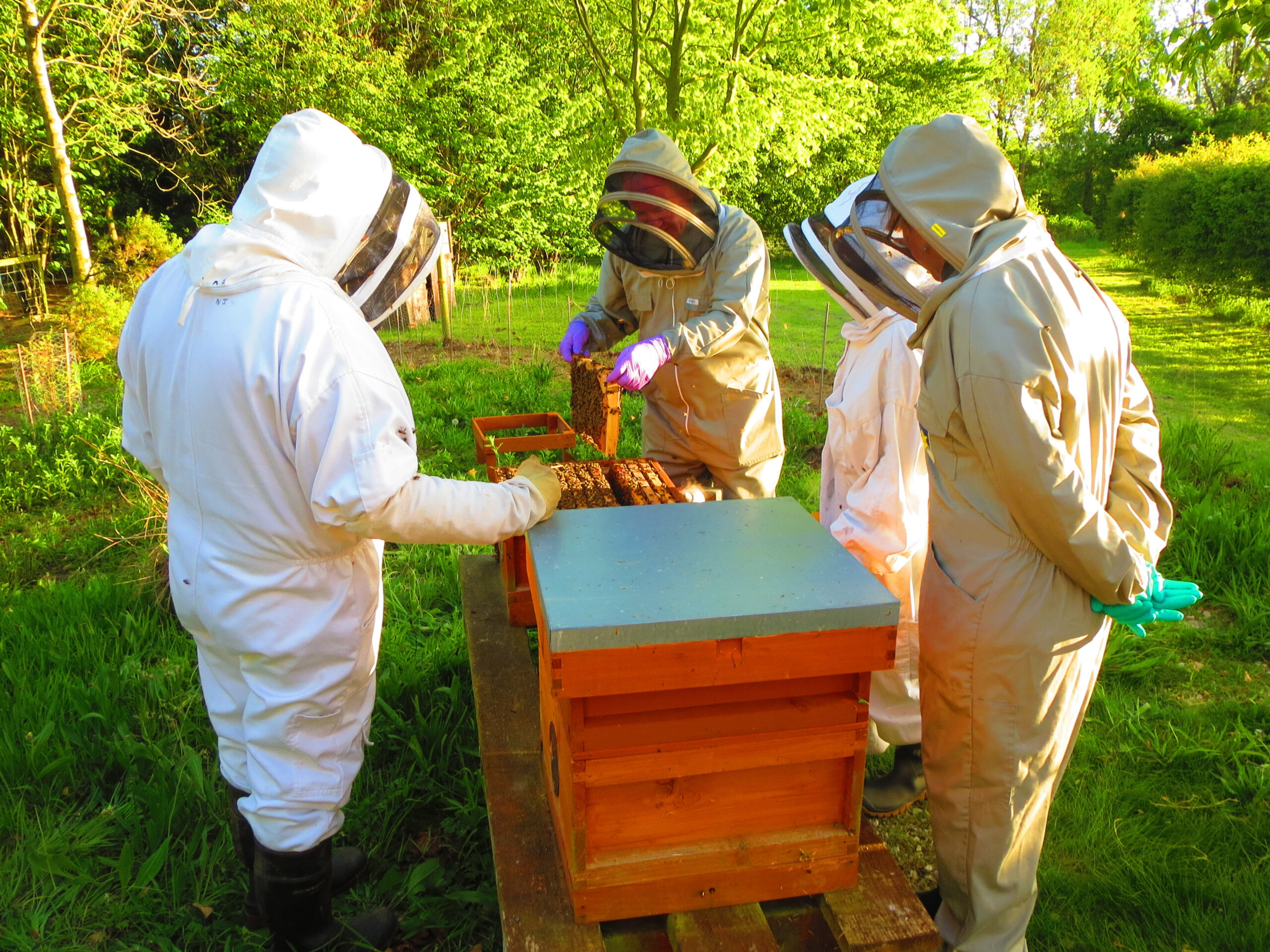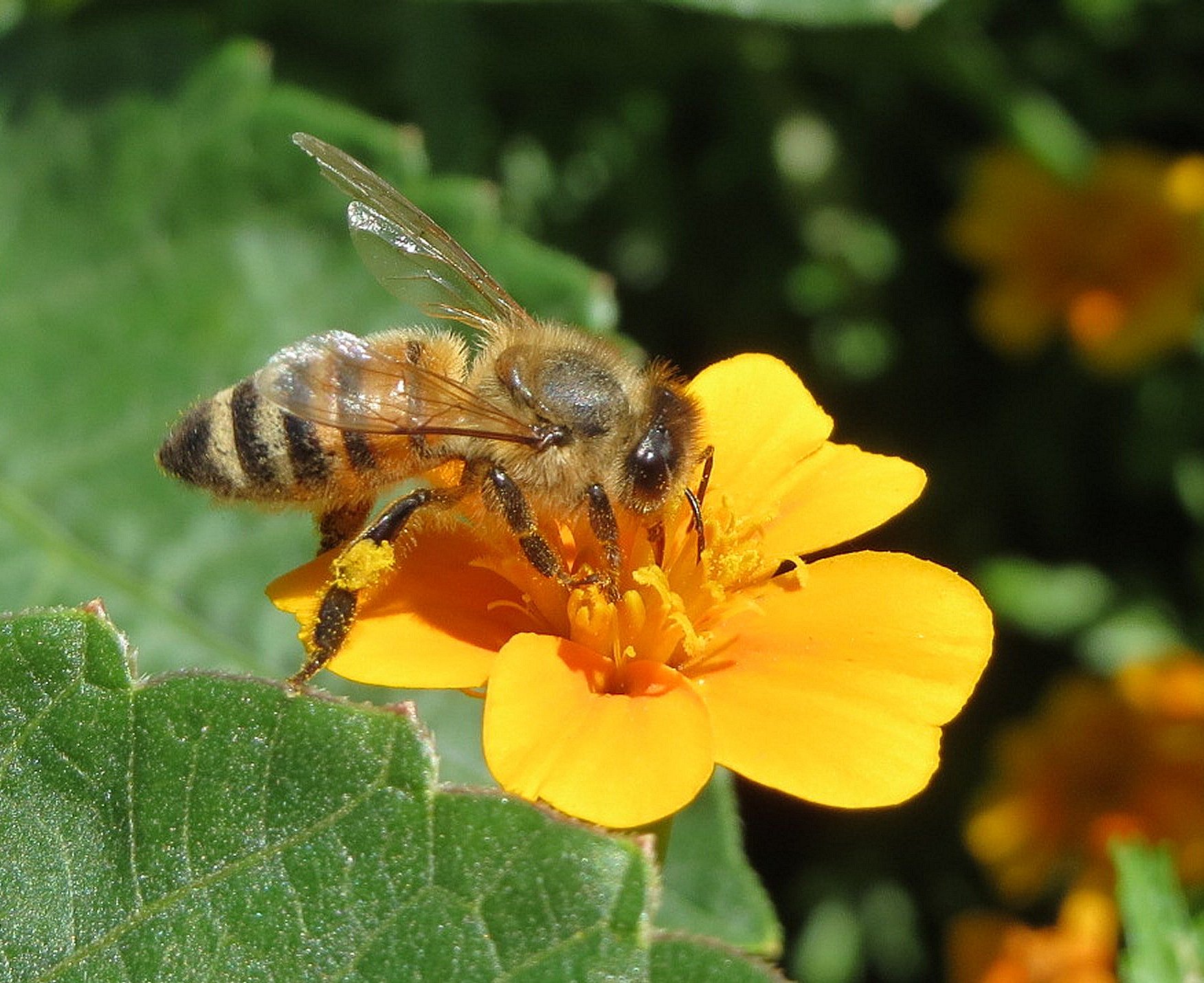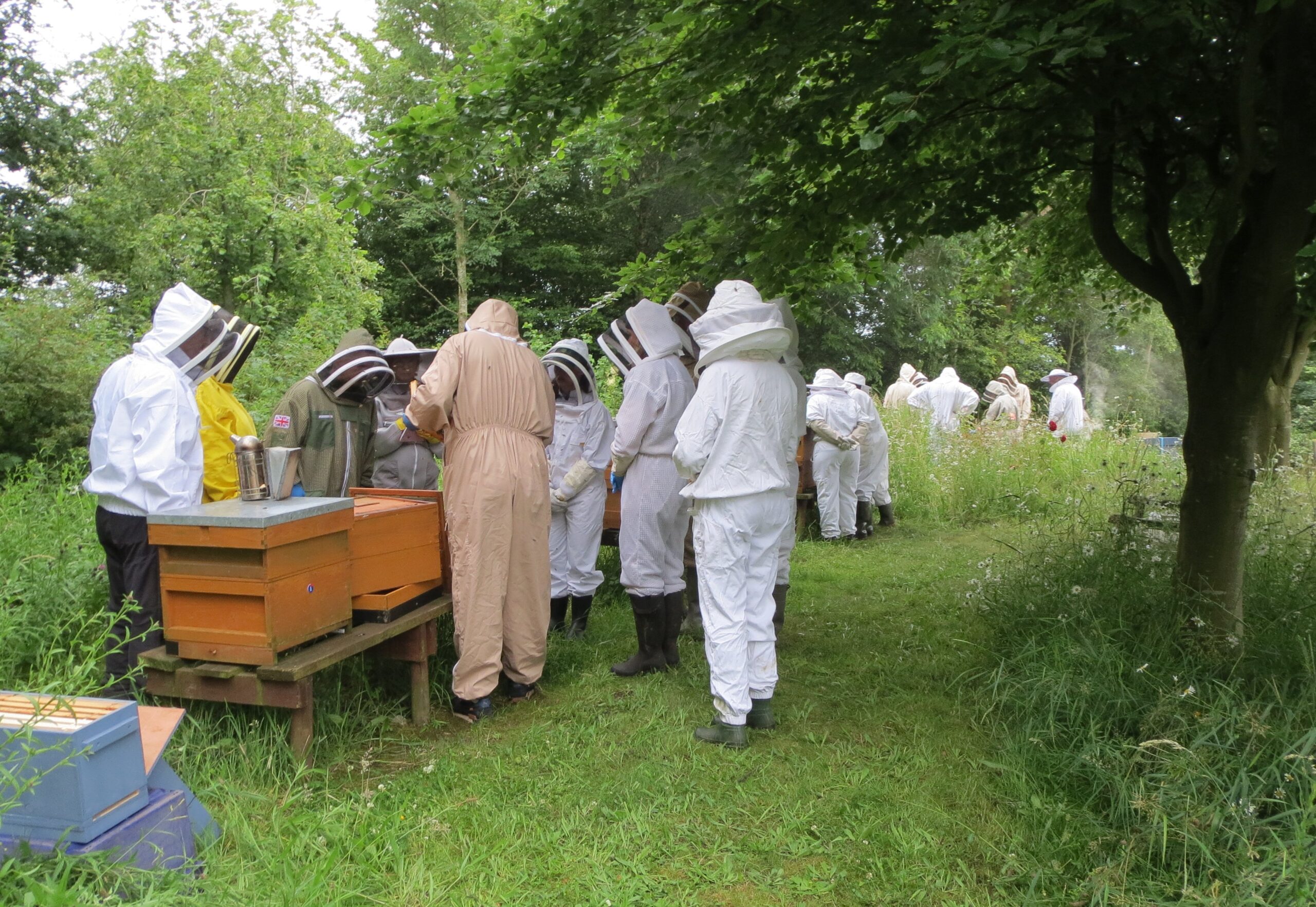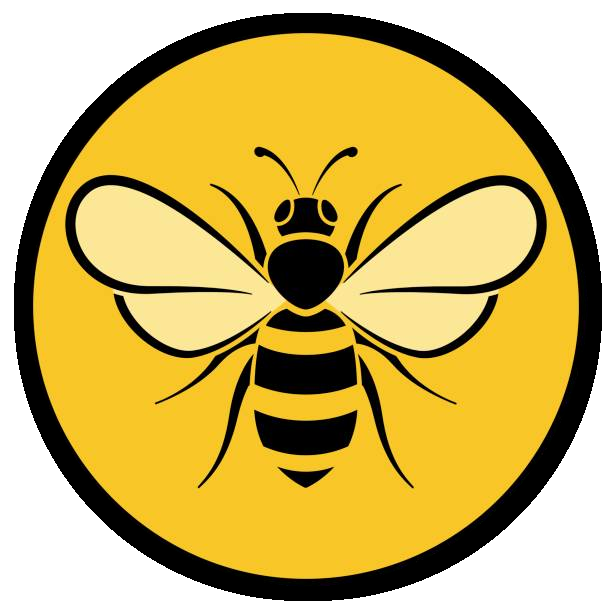Mid Cheshire Beekeepers (MCBK) is one of five branches in the Cheshire Beekeeping Association (CBKA), the others being North Cheshire, South Cheshire, Wirral and Stockport. Established in 2012, MCBK is the youngest CBKA branch and now has around one hundred members, many of whom have just started beekeeping.
We aim to promote the craft of beekeeping and increase public awareness of the importance of honeybees and other pollinating insects to our well-being and existence. To this end we provide training and mentoring for new beekeepers, hold meetings on a range of subjects for both novice and experienced beekeepers, host apiary visits, organise stands at various shows throughout the county, and give talks to schools and local community organisations.
If you are interested in becoming a beekeeper, please come along to any of our branch meetings listed on the Events page of this website where you will be most welcome. If you wish to join MCBK then please download and complete the membership form shown on the About Us page of this website.



NEXT MEETING

Mid Cheshire Branch Honey Show
Toolerstone House, Sandiway, CW8 2JN
Monday 4th November
Entries to be staged by 7:15 pm
Judging to commence at 7:30 pm
Our annual branch honey show is again being held at Toolerstone House which is a great venue and for which MCBK is most grateful to our hosts in Sandiway. All members, and especially our new beekeepers, are invited to submit entries for the show which is always an informative and enjoyable event. John Goodwin has kindly agreed to judge the entries and will employ “open judging” so you can receive direct feedback on your entries without being identified.
As shown in the schedule below, there are many different classes to enter and trophies to be won. If you wish to enter please send your completed entry form, which is included in the schedule, by post or e-mail to the Show Secretary no later than Friday 1st November.
